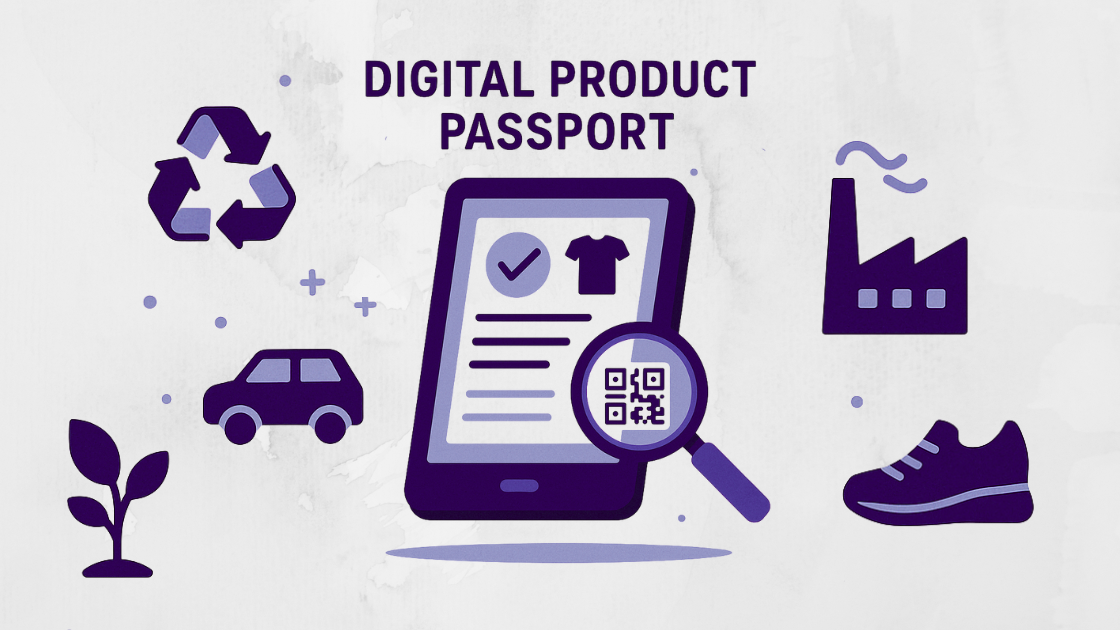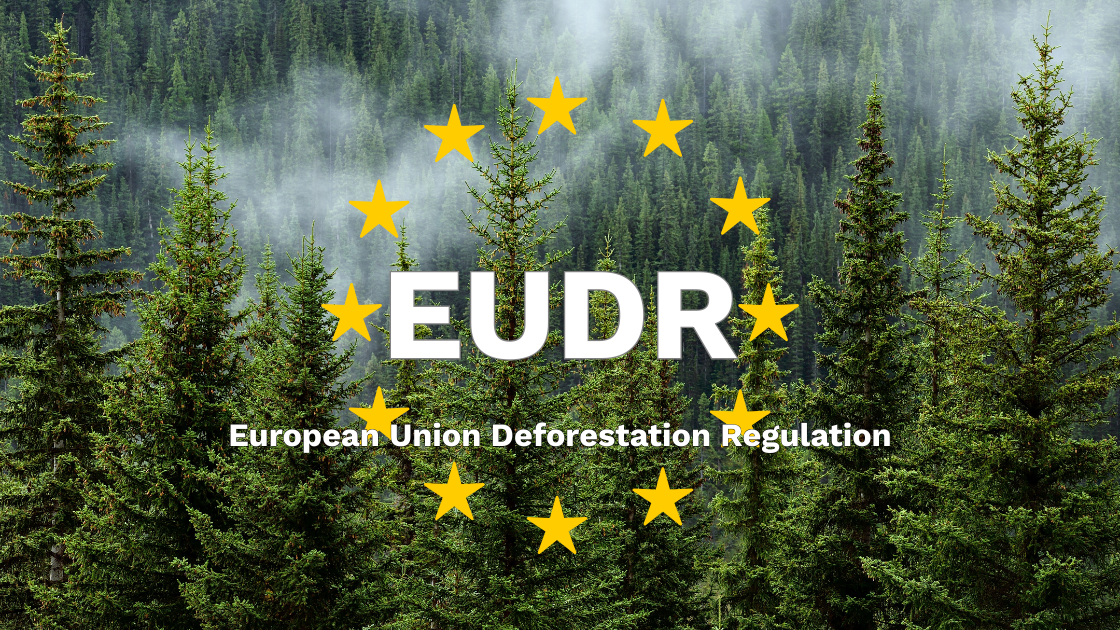The EUDR: What the new Deforestation Regulation means for UK businesses
Tropical deforestation is responsible for around 20% of annual global greenhouse gas emissions and 15% of global carbon emissions, posing a significant threat to biodiversity and accelerating climate change. In response, the EU has introduced the Regulation on Deforestation-Free Products (EUDR), a law aimed at tackling deforestation and promoting sustainability. This blog explains the regulation and what it means for your business.

What is the EUDR and why it matters?
The Regulation on Deforestation-Free Products (EUDR) is a new European legislation combating deforestation. From 30 December 2024, products contributing to deforestation or forest degradation will no longer be allowed into the EU market. This law requires companies to prove that their products are not sourced from recently deforested areas and are compliant with the regulation. Although the United Kingdom is no longer part of the European Union, the EUDR remains relevant for UK companies trading with EU countries. Businesses exporting raw materials or products to the EU must comply with this regulation to retain access to the European market. This article explains what the EUDR entails, what it means for you, and what you must do to comply with this legislation
Who needs to comply with the EUDR?
The EUDR applies to both producers within the EU and companies importing or exporting goods. The law targets raw materials and products considered major contributors to deforestation, such as cattle, palm oil, soy, cocoa, coffee, rubber, and wood. Derived products, like leather, chocolate, and furniture, also fall under this law.
The EUDR applies to large enterprises, SMEs, and even sole traders who process or trade these raw materials. Whether you are a small trader or a large producer, if you work with these raw materials or products, you must comply with the EUDR. However, individuals do not need to adhere to the EUDR when purchasing these products for personal use.
UK companies exporting products or raw materials to the European Union are also subject to the EUDR. To maintain access to the EU market, UK businesses must meet the EUDR's due diligence requirements.
Key dates and grace periods: When does the EUDR come into effect?
The EUDR will come into force on 30 December 2025. There is a grace period for micro-businesses and SMEs until June 2026, unless they are active in the timber sector (due to existing legislation; European Timber Regulation (EUTR)). This gives companies more time to take the necessary measures and adjust their processes to comply with the legislation.
How to ensure compliance in EUDR?
To comply with the EUDR, you must implement a Due Diligence System (DDS) to demonstrate that your products are deforestation-free. Companies bringing products or raw materials to the EU market must conduct due diligence to monitor the supply chain. This involves collecting data on the origin of your products, conducting risk assessments, and taking measures to minimise deforestation risks.
Companies that work with products already verified through due diligence in their supply chain may rely on their suppliers’ due diligence processes. However, larger traders must establish and maintain their own due diligence systems.
You are required to set up a due diligence system if you:
- Produce, import, or export products or raw materials in the EU covered by the EUDR, such as cattle, palm oil, soy, cocoa, coffee, rubber, and wood.
- Are a market participant bringing products or raw materials to the EU market.
You are not required to set up a due diligence system if you:
- Are an SME trader selling products that have already undergone a due diligence check.
- Are a micro-enterprise or SME that only works with raw materials already on the market.
In these cases, you must keep records of your suppliers and customers, store due diligence statements, and retain documentation for at least five years. For a more detailed description, look here.
Complying with the EUDR helps UK companies maintain access to the European market and provides solid preparation for similar sustainability legislation in the UK, such as the UK Environment Act (See section 116. Schedule 17: Use of forest risk commodities in commercial activity). This proactive approach can help businesses strengthen their competitive position and appeal to customers and investors who value sustainability.
Prepare for the EUDR
The EUDR is an essential step toward a more sustainable future. By taking action now, you can contribute to environmental preservation, enhance your business's sustainability credentials, and avoid potential fines and trade bans.
For UK businesses trading with the EU, it will be crucial to comply with the EUDR promptly to maintain market access and demonstrate compliance. If you are a producer and/or exporter to the EU with either these products or products that contain these base materials, you will need to be able to show your due diligence at product level at the border. By embracing due diligence and preparing for the EUDR, you ensure as an exporter to the EU that your business remains future proof. We have been informed that regularly authorities will enforce compliance on a gradually basis, but it very much remains to be seen what will happen at the borders. risks and position yourself as a leader in sustainable trade. This strategic commitment can open doors to new opportunities and partnerships, driving long-term success and positive impact.
The EUDR risks to be a game-changer for your business, and the time to act is now. If you want help, learn more or get started? Contact us today and take the next step towards a sustainable future with us!



